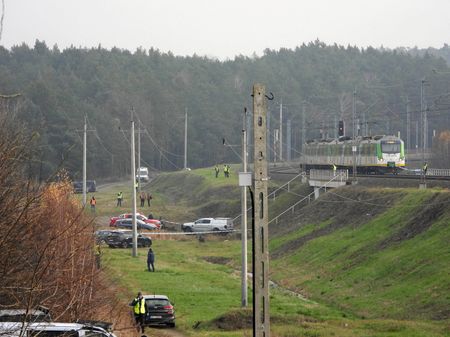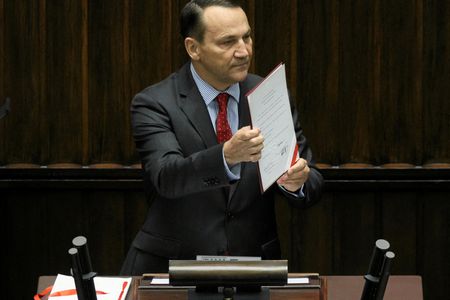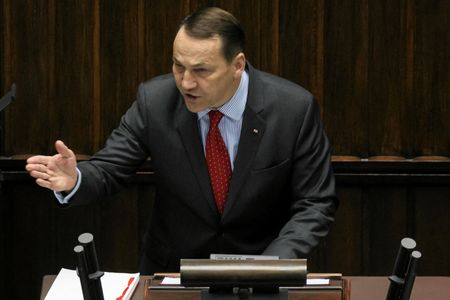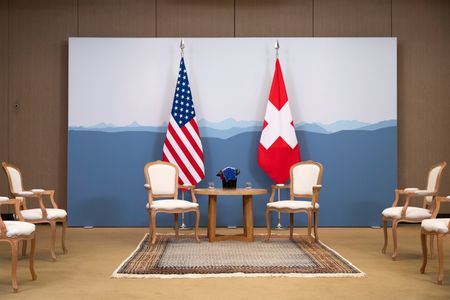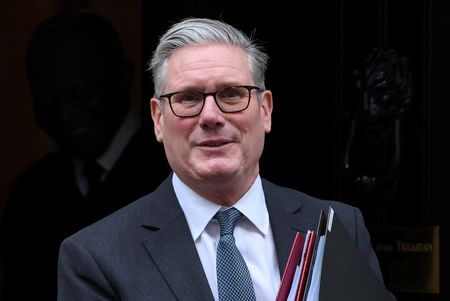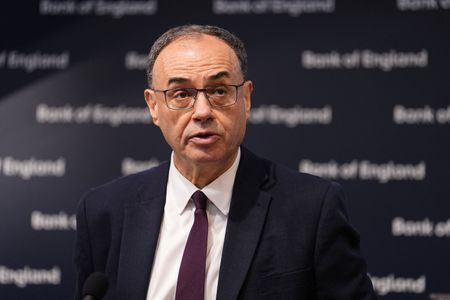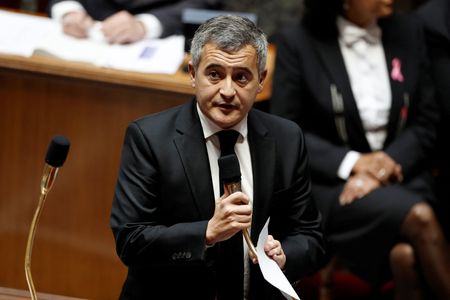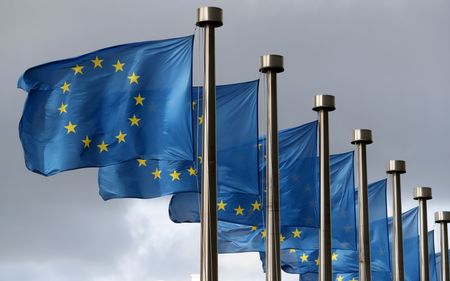By Marek Strzelecki
WARSAW (Reuters) -Poland said on Wednesday it would close the last Russian consulate in its territory and urged EU allies to restrict Russian diplomats in the bloc’s Schengen free-travel area in response to a railway explosion it blames on Moscow.
Poland, a major ally in Kyiv’s fight against Russia’s invasion, says two Ukrainians collaborating with Moscow perpetrated the weekend blast on the Warsaw-Lublin line, which connects Warsaw to the Ukrainian border.
The pair fled to Belarus, an ally of Russia, Warsaw says.
Polish Foreign Minister Radoslaw Sikorski said at a news conference that the first response would be to close Russia’s last operating consulate in the northern city of Gdansk.
Warsaw has previously closed Russian consulates in Krakow and Poznan over sabotage acts.
“It was not only an act of sabotage but also an act of state terrorism,” Sikorski earlier told lawmakers of the railway attack, saying a non-diplomatic response would be coming too.
Moscow denies responsibility for sabotage, citing “Russophobia” in Poland, and said it would likewise limit Poland’s diplomatic and consular presence in Russia.
Sikorski also told reporters he would ask other EU nations to limit Russian diplomats’ travel in the 25-nation Schengen area, warning “this is not the end” of Poland’s response.
“We encourage our allies in the European Union to prevent Russians from enjoying the benefits of the Schengen countries, which they are trying to destroy, among other things, by pushing migrants across the border,” Sikorski said.
Poland and its European Union allies accuse Minsk and Moscow of orchestrating a migrant crisis on its border with Belarus.
Jacek Dobrzynski, spokesperson for Poland’s minister in charge of intelligence services, said that in addition to the two suspects who had fled, several other people had been detained over the railway blast, but he did not give more details.
There has been a wave of arson, sabotage and cyberattacks in Poland and other European nations since Russia’s full-scale invasion of Ukraine began in 2022.
(Reporting by Marek Strzelecki, Pawel Florkiewicz, Anna Wlodarczak-Semczuk; Editing by Andrew Cawthorne)

